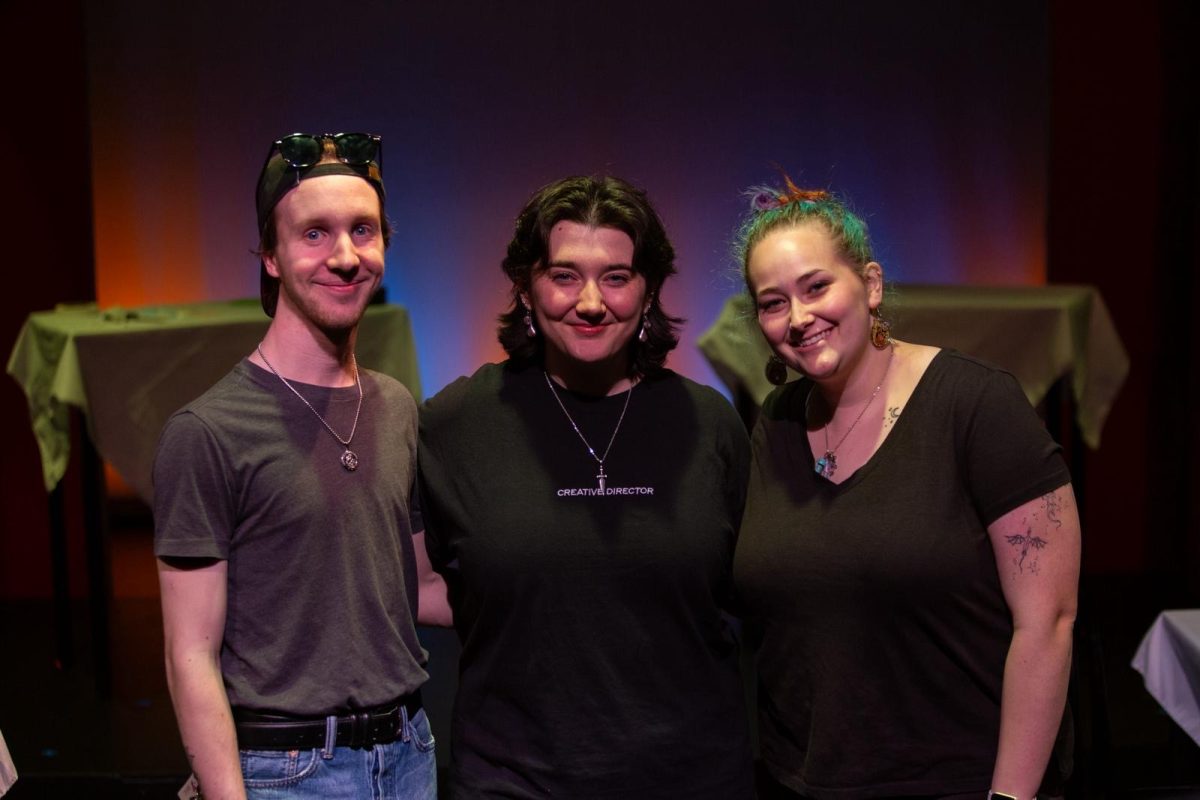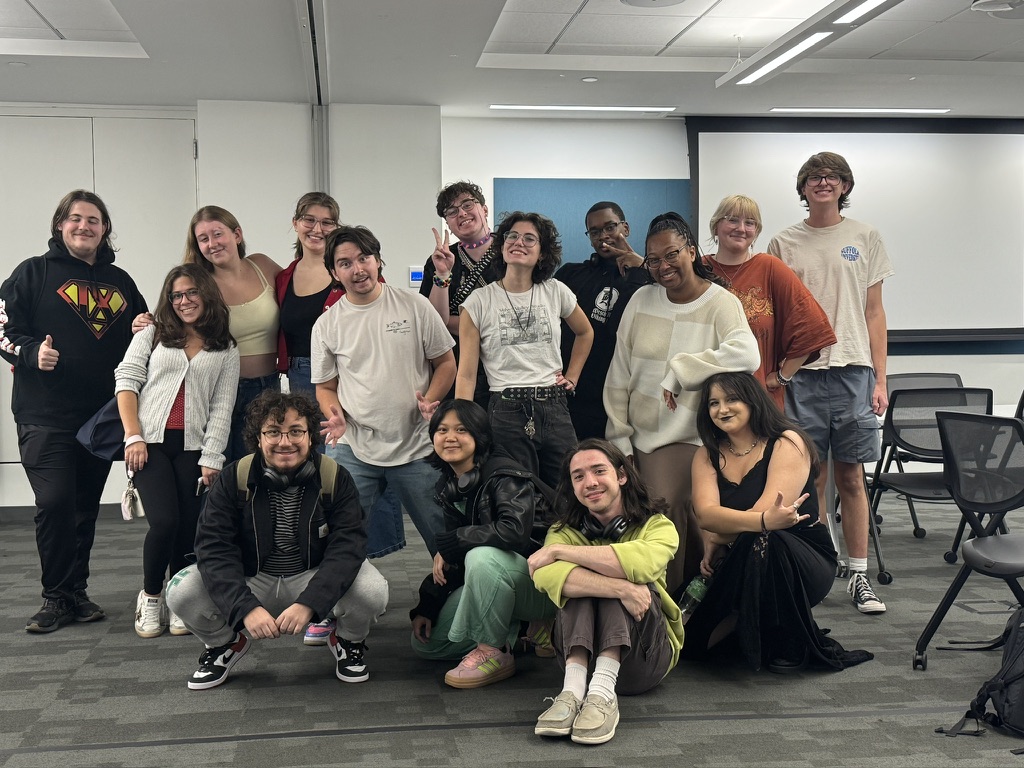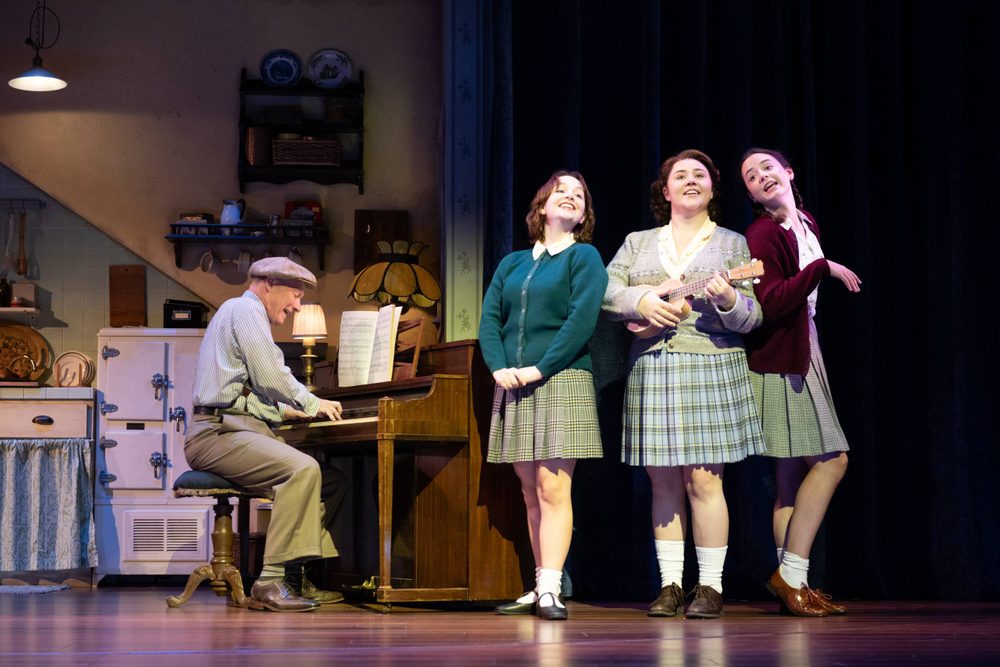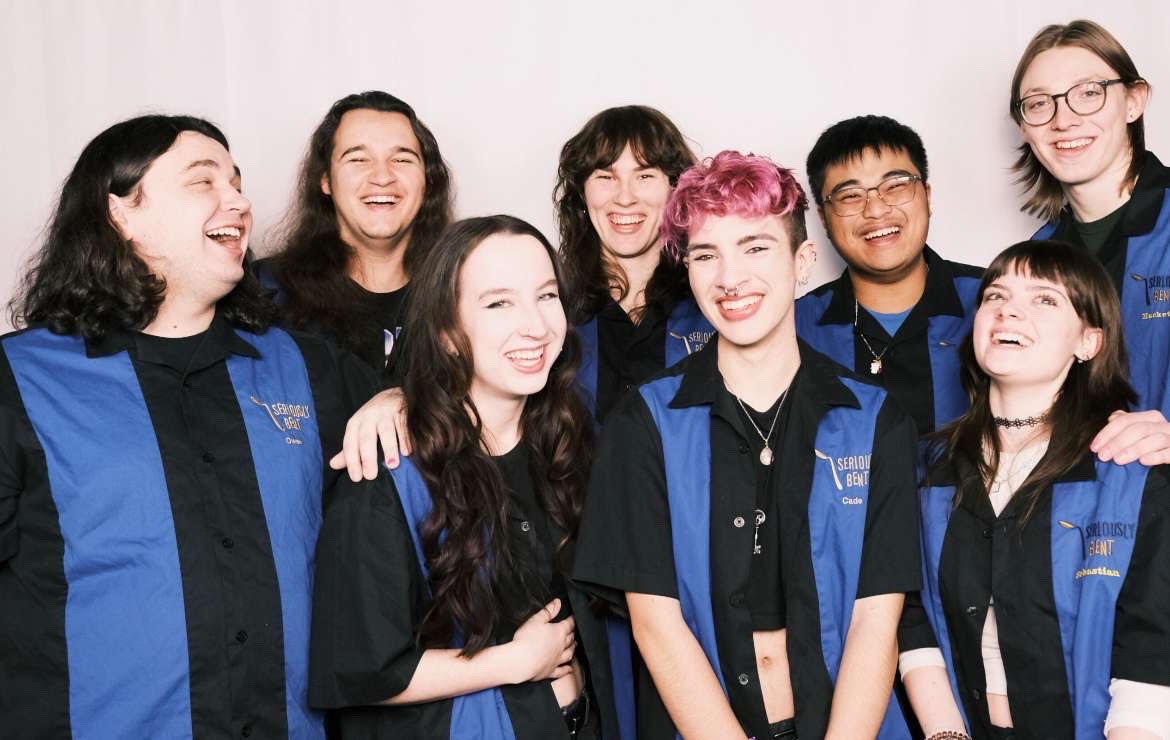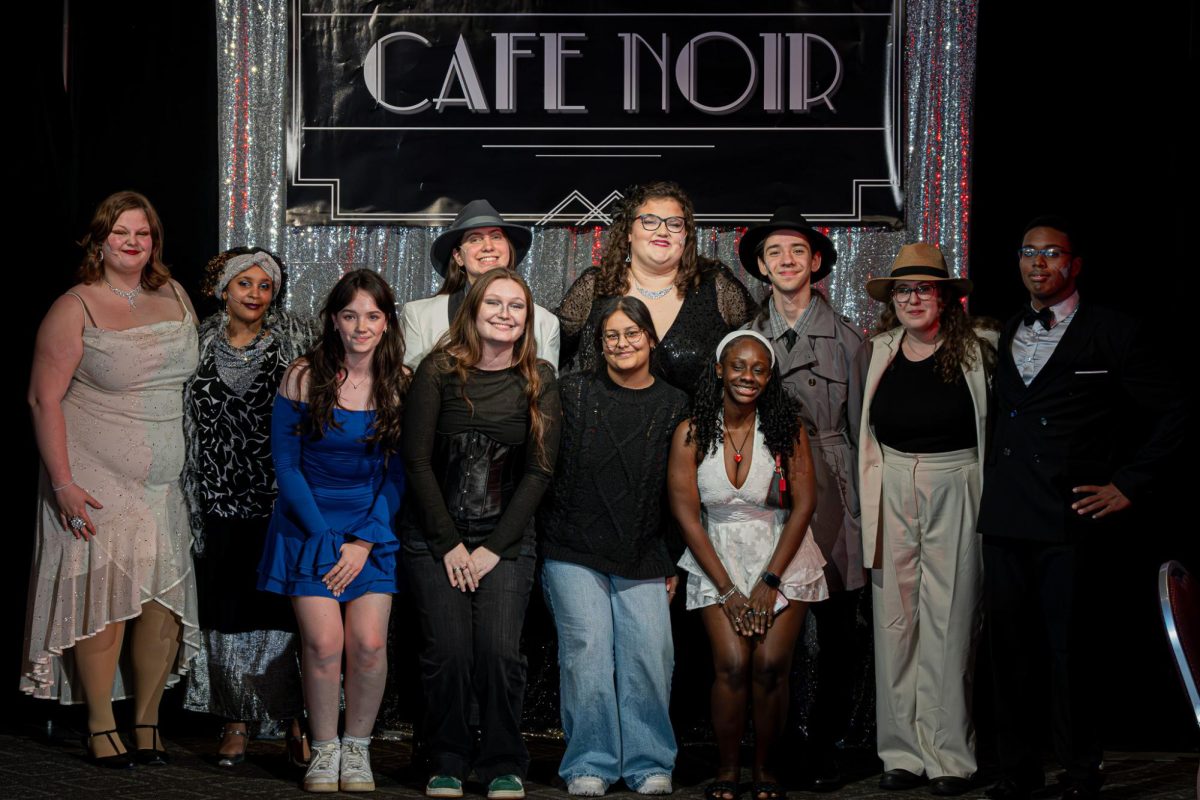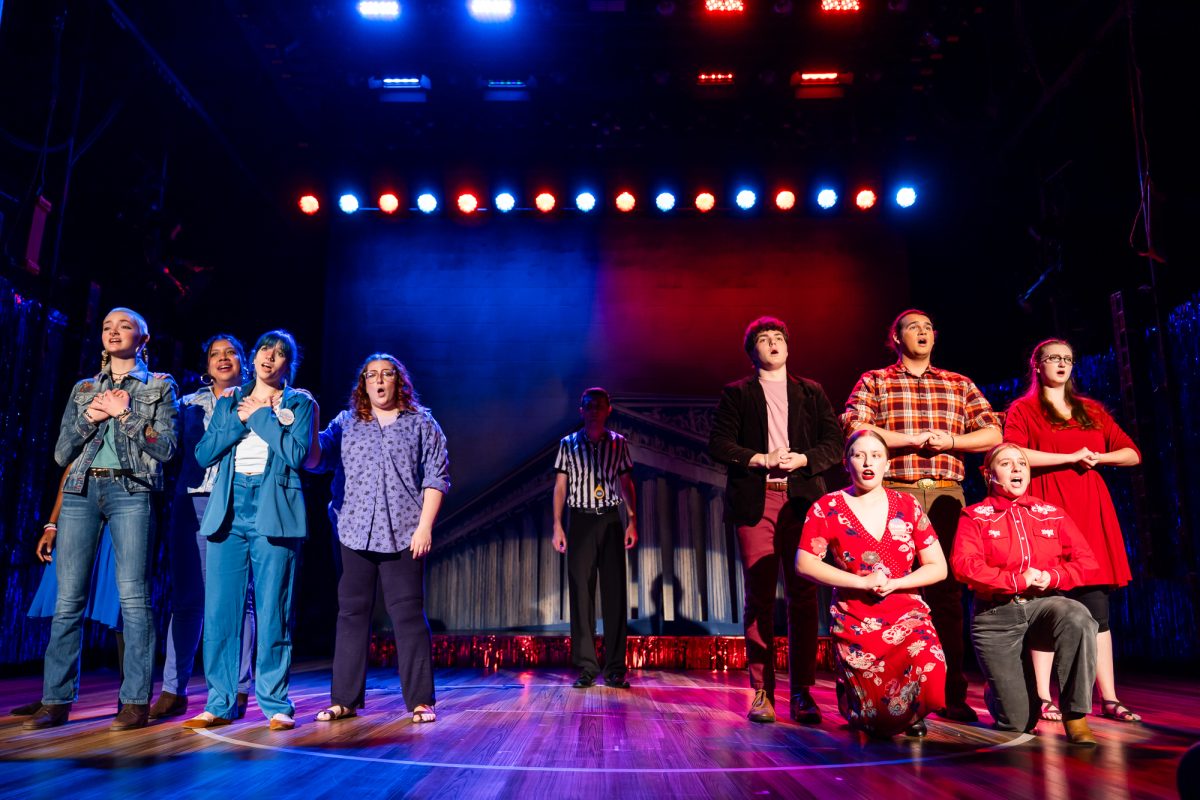The internationally-known Sandglass Theater, Ford Hall Forum and Suffolk University Theatre Department, told a unique and moving refugee story through a puppet show last week at Modern Theater.
The cast of five members, each coming from a different background, told the stories of migrants seeking asylum using song and puppeteering in Babylon: Journeys of Refugees. After the conclusion of the show, a panel comprised of a host and three individuals, all with expertise on the refugee crisis, opened a discussion with the audience.
Nearly every seat at Modern Theater was taken when the show started. People of every ethnicity, religion and age were amongst the audience. After seeing the performance, the audience was left to consider the question, “are we to blame for this problem?”
Babylon was an ancient city located in Mesopotamia. King Nebuchadnezzar II conquered Jerusalem, destroyed sacred religious artifacts and forced thousands of Hebrews to find refuge in Babylon. One panelist, Professor Ragini Shah, referred to this as the Babylonian Exile. Today, Babylon lies south of Baghdad, Iraq, with little more than sand and rock remaining of its glorious past.
Like the Hebrews of Babylon, the accounts told in the play involved people having no other choice but to relocate their family with what they could carry. The show described the harrowing experiences of an Afghani mother, the tribulations of a Burundi man and his daughter, the failed attempt of freedom of a Salvadorian boy and a man with the similar fate from Syria.
The voices of the performers resonated the walls of the theater, as they sang sad songs with emotion – all while carefully moving the head, arms and legs of their puppets. The puppets were dressed in very basic and tattered clothing, reflecting their social and economic situation.
As one would expect, their clothes were nothing extravagant in terms of fashion. The attention to detail and historical accuracy of the puppet designers Ines Zeller Bass and Jana Zeller was authentically portrayed.
At one point all the puppets were united when they were seen floating on rafts, with life jackets around their necks, uncertain of their future – a grim representation of what is occurring today in the Mediterranean Sea.
At one part of the show, the cast spoke in a way that coincides with the way many Americans look at the current refugee crisis. Utterances such as “economic problem,” “drug mule” or “thug” were heard as they paced across the stage, satirically speaking aloud on their phones.
The cast also relayed a lot of misconceptions that surround refugees, many of which, as the various members of the cast exclaimed, are based on hearsay and unconfirmed facts.
To qualify for asylum in the U.S., a refugee must cite a “credible fear,” such as torture or death, that prevents them from returning to where they traveled from. Very few people seeking asylum are successful, about one in ten, according to The New York Times.
The cast members cite the fact that if a refugee is a victim of domestic violence, gang violence or non-governmental wars, they do not qualify for asylum either. Gangs are the only law in large areas of Latin America and Somalia, and they are responsible for sexually and physically abusing many.
The cast and panelists mentioned many are killed as a result of gang activity. Refugees from countries like El Salvador, Mexico and Guatemala learn this at the United States-Mexican border, only to be turned around.
After the show ended, a panel consisting of co-director Eric Bass, Suffolk University Chaplain Reverend Amy Fisher and Law Professor Shah. Event host and Professor Iani Moreno interviewed and asked the panel questions relating to the refugee crisis and the content of the show. They answered the questions of the audience, and asked for their interpretations of key characters and concepts.
“What about the sales of arms?” asked Bass, referring to the U.S. involvement with the violence in El Salvador.
Bass and the panelists mentioned that many of the weapons used in the violence are actually from the U.S. In 2014, the U.S. Bureau of Alcohol, Tobacco and Firearms discovered that 50 percent of the murders in El Salvador, were caused by guns from the U.S.
The U.S. government supplied the Salvadoran government with tens of thousands of weapons during their civil war in the 1980s, many of which were just left lying around after the conflict ended according to the Latin America Working Group.
During the post-performance discussion, one of the cast members, Keila Ching, mentioned the importance of using puppets to tell these stories.
“The medium of the puppet allows the practice of compassion,” Ching said. “A vessel that is empty.” Fisher and Shah reinforced this statement, saying that many refugees seeking asylum have gone through arduous and trying journeys. It is often extremely difficult for refugees to talk about and relive the trauma they experienced.
Shah joined Suffolk University in 2007 as a clinical professor of law and founded the university’s first immigration clinic the same year. This clinic assists detained immigrants and unaccompanied minors to avoid facing further displacement.
“I train my students to attune to signs of trauma and not push too hard when speaking with those seeking asylum,” Shah said.
The individuals she works with are detained at Suffolk House of Corrections and Plymouth County Correctional Facility, where they currently reside in jail cells.
“You come into an interview with questions you’d like answers to,” Eric Bass said, “the person is not there to answer questions, they tell the story they want you to hear. You learn quickly that the interviewer’s role is to listen.”
The team found an ingenious way to retell the stories of refugees without having to involve refugees directly in the show. The use of puppets shields refugees from reliving their traumatic experiences while being informative and educational.
The journey of the refugee is filled with challenges. Bass and his team have worked on this particular show for three years and have found more and more stories as the refugee situation has evolved.
“The show is not finished, I think there are problems working out – the crisis is ongoing,” said Bass at the end of the night.


